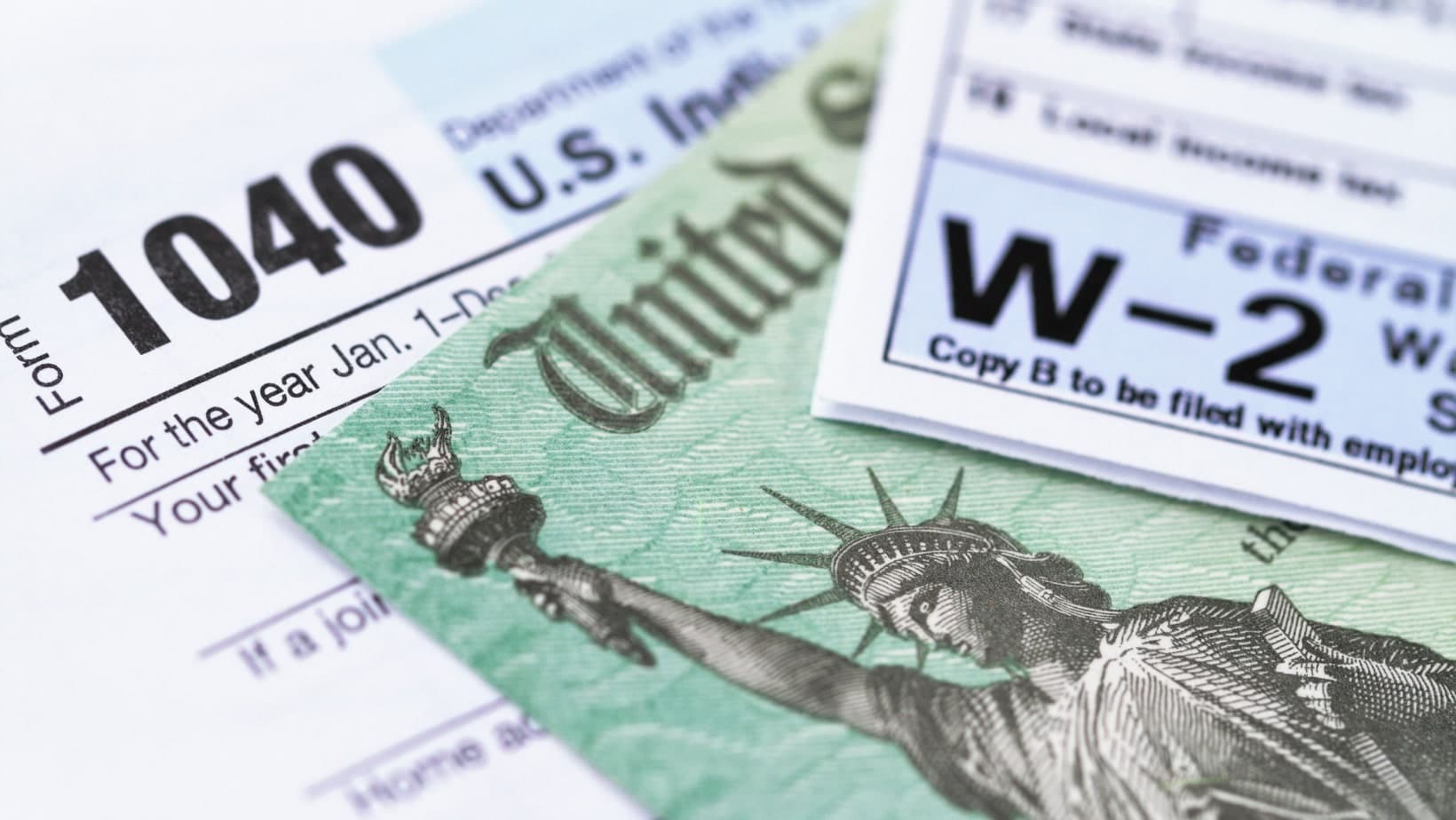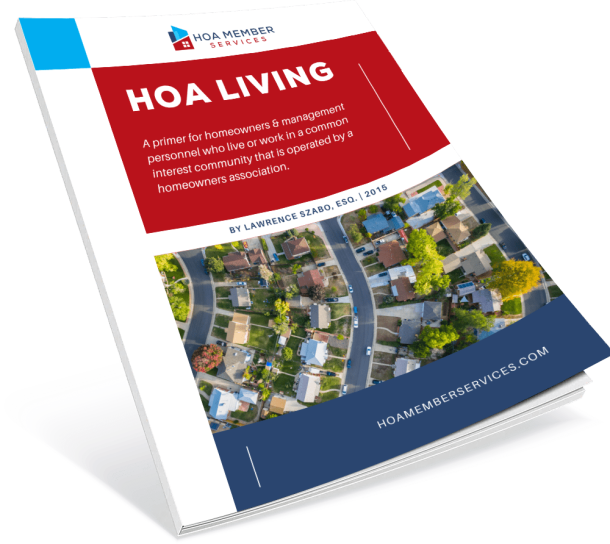If you’ve ever assumed your HOA is “non-profit” and left it at that, you might be in for a surprise. While many homeowners associations (HOAs) are set up as nonprofit corporations under state law, that doesn’t mean they’re automatically off the hook when it comes to taxes.
In fact, the nonprofit label can be misleading. Whether or not an HOA is truly tax-exempt depends on how it’s organized, how it operates, and which section of the Internal Revenue Code it falls under.
This isn’t just a technicality. The tax status of your HOA can directly affect how it handles your dues, what it can charge, and how it prepares budgets or long-term reserves.
In this guide, we’ll cover the legal structure of HOAs, break down what it really means to be non-profit, and explore how taxes and tax exemptions come into play.
Let’s start with the basics.

Homeowners Associations Explained
What Is An HOA?
A homeowners association (HOA) is a legal organization formed to manage and maintain shared property and uphold neighborhood standards. Most HOAs begin as part of a residential real estate development, created by the real estate developer to oversee the community.
These associations are usually set up as nonprofit corporations, but being nonprofit under state law doesn’t mean they’re automatically tax-exempt. The IRS has its own criteria for that, which we’ll cover soon.
Once control passes from the developer, the HOA board, made up of elected homeowners, takes over operations.
Typical Revenue Streams
HOAs need money to function, and that usually comes from:
- HOA fees (monthly or annual dues)
- Special assessments (for major repairs or emergencies)
- Fines for violating HOA rules
- Rental income from common areas or recreational facilities
How those funds are collected, spent, and reported can directly affect the HOA’s tax obligations.
Non‑Profit vs. Tax‑Exempt – A Critical Distinction
When someone describes their HOA as “non‑profit,” that refers to its state-level incorporation as a nonprofit corporation. In other words, any surplus stays in the association — used for upkeep, common areas, and reserves — rather than being distributed as profit.
But that doesn’t mean it’s automatically tax-exempt federally.
To be tax-exempt, an HOA must qualify under federal rules — typically IRC section 528, or occasionally under IRC section 501(c)(4).
- IRC section 528: This homeowner-specific code lets qualifying HOAs exclude assessment income from taxable income. But any non‑assessment revenue (like rental income) may still be taxed at around 30 percent.
- IRC section 501(c)(4): A broader category for social welfare organizations. An HOA must operate primarily for community-wide benefit to qualify; otherwise it risks failing IRS scrutiny.
Key Differences:
- Non-Profit (State): Doesn’t distribute profits; obligated to serve homeowner members.
- Tax-Exempt (Federal): Must meet detailed IRS rules; must mostly collect income from assessments used to maintain or improve property.
Most HOAs operate under section 528, which allows them to avoid federal tax on assessment income as long as funds are used properly. But HOAs filing under 501(c)(4) are treated more like social welfare organizations, requiring additional oversight and public disclosures.
Understanding your HOA’s tax structure clarifies how HOA dues and special assessments are treated and helps protect the financial health of your community.

Choosing a Federal Filing Path
When it comes to taxes, HOAs generally take one of three IRS routes. Your community’s designation heavily influences federal obligations and what your homeowners need to pay attention to.
1. Section 528 – The HOA-Specific Safe Harbor
Most HOAs file under IRC section 528, which applies when:
- At least 60 percent of income is from HOA dues or assessments
- Funds are used only for maintaining common areas, insurance, or reserves
- The HOA submits Form 1120‑H annually. This allows HOAs to exclude most assessment income from taxable revenue, though non-assessment income (e.g., guest fees, rentals) remains partially taxable .
2. Section 501(c)(4) – Social-Welfare Route
A less common path, HOAs under 501(c)(4), are treated like social welfare organizations. They must demonstrate service to the general public and submit Form 990. This path often requires greater public disclosure and stricter oversight .
3. Filing as a Regular Corporation
If your HOA doesn’t qualify under 528 or 501(c)(4), it defaults to filing Form 1120, paying federal income tax on profits, anything beyond HOA fees, and allowable expenses.
Why This Matters:
The path your HOA chooses affects everything from annual dues to what happens if a fund has surplus cash. And for homeowners? Understanding the tax form tells you why certain line items show up in your HOA’s financial statements.
Visit the IRS for full details on Form 1120‑H for section 528 and Form 990 for 501(c)(4) organizations.
Common Areas, Amenities, and Revenue Traps
Your HOA’s common areas, like pools, parks, clubhouses, landscaping, and recreational facilities, are essential for community life. But they can also create complex financial and tax considerations, especially when generating income.
Income Sources in Common Areas
- Rentals or reservations: Renting the clubhouse for private events or allowing paid guest access to the pool.
- Advertising or sponsorships: Small-scale ads in community newsletters or on signage.
- Fitness or vending machines: Occasional income not associated with assessments.
Tax‑Trap Warning Signs
While HOA dues and assessments used for community maintenance fall safely under IRC section 528, income from these common-area services may be taxable.
Here’s why:
- The IRS views assessment income as exempt, but side revenues are considered “unrelated business income.” Those funds require filing Form 1120 and paying corporate tax .
- If these secondary revenues become a pattern, the HOA could jeopardize its entire tax‑exempt status, triggering penalties and unexpected tax bills.
Takeaway for HOA Boards:
- Track income sources separately: assessments vs. common-area rentals or fees.
- Limit non-assessment revenue or report it properly on Form 1120.
- Consider consulting a tax professional when opening new revenue streams to avoid surprises.
Mistakes in how common-area income is handled can cost your community. Proper planning prevents those “hidden” tax liabilities before they hit home.

State and Local Tax Implications
HOAs aren’t just dealing with federal tax rules; they’re also tied to state and local tax requirements that can materially affect budgets, compliance, and long-term planning.
Property and Real-Estate Taxes
In most jurisdictions, HOA communities don’t pay property tax on shared spaces (like parks or clubhouses), but parcel-level property taxes still apply. Your community’s governing documents may determine who absorbs increases, often passed through via HOA dues or special assessments.
Sales, Use, and Local Taxes
HOA-run events, clubhouse concessions, or vending machines may be subject to state sales tax or municipal use taxes. Some municipalities also require licensing for rentals, even when managed by the HOA.
State Franchise Tax Exemption
Many states allow nonprofit corporations to apply for a state franchise tax exemption or nonprofit filing status. Rules vary dramatically:
- Some states require annual financial reporting, or the exemption can lapse.
- Others automatically exempt non-profit HOAs, but only if properly registered.
If your HOA fails to maintain state compliance, it could suddenly become liable for corporate income or franchise taxes. That can mean unexpected fees, late penalties, or even loss of municipal good standing.
Governing Documents and Compliance
HOA governing documents — especially CC&Rs and bylaws — do more than set rules; they define the authority of your HOA board and frame financial and tax responsibilities. These documents guide everything from dues collection to defining HOA rules and sanctioning enforcement.
Covenants, Conditions, and Restrictions (CC&Rs)
Clearly outline maintenance duties for common areas, funding of reserves, and your community’s ability to levy HOA dues or special assessments. Accurate wording can determine if funds qualify under IRC section 528.
Bylaws and Board Authority
Bylaws set governance rules: election procedures, board member responsibilities, voting rights, and conflict-of-interest policies. Boards must follow them closely, especially around spending and entering contracts with an HOA management company or an HOA attorney.
Compliance and Reporting
To maintain tax-exempt status, HOAs need:
- Accurate bookkeeping, separating exempt vs. non-exempt income.
- Annual filings: IRS Form 1120‑H, 990 (for some), and state-level reports.
- Public meeting notices, member votes, and meeting minutes.
Failure to comply — filing tax returns, adhering to bylaws, or maintaining corporate registration — can result in IRS penalties or the loss of state nonprofit status. That puts the HOA at risk of paying taxes, reinstatement fees, or legal challenges.
HOA Financial Management Essentials
Effective financial controls are vital for any HOA. The board must ensure that HOA dues and assessments are collected fairly, accounted for accurately, and used exclusively for community needs.
1. Budgeting and Reserve Planning
A comprehensive budget should forecast annual income and expenses, including maintenance of common areas, insurance, utilities, and recreational facilities. A reserve study schedules long-term capital repairs — such as roof replacements or asphalt resurfacing — to ensure funds are available when needed.
2. Separating Exempt and Non-Exempt Funds
HOAs must distinguish assessment revenue (exempt under IRC section 528) from other income (like clubhouse rentals or advertising). That secondary income is considered unrelated and may be taxable. Separate bookkeeping prevents accidental tax liabilities.
3. Working with Professionals
- Engage a certified tax professional annually to review filings—either Form 1120-H or 1120.
- Consult an HOA attorney to confirm compliance with bylaws, CC&Rs, state filings, and tax regulations.
- If using a HOA management company, ensure they provide transparent financial reporting and follow best practices.
Clear financial planning safeguards your investment and ensures assessments align with actual needs and future repairs. It also maintains tax‑exempt status and prevents costly penalties.

What the HOA’s Tax-exempt Status Means for Individual Owners
As a homeowner, understanding your HOA’s tax status is more than academic — it can directly affect your finances and peace of mind.
Can You Deduct HOA Fees?
- HOA dues are generally not deductible on personal returns, unless you rent the property.
- For rental homes, dues may be deductible as a business expense.
Consequences of Losing Tax Exemption
If an HOA loses its tax-exempt status:
- It may have to pay taxes retroactively on previous revenues.
- It could levy special assessments to cover the tax bill.
- Your property values and insurance rates could suddenly shift.
Best Practices Checklist for Boards
A proactive board keeps the community smooth, compliant, and fiscally healthy.
Here’s what you should keep in check:
1. Governance & Financial Clarity
- Adopt clear policies for HOA dues, collections, and special assessments.
- Approve and publish an annual budget, ensuring it reflects short- and long-term needs.
- Keep financial records and minutes accessible to homeowners.
2. Tax and Legal Oversight
- Confirm that the HOA qualifies under IRC section 528 or 501(c)(4).
- Engage a tax professional annually and an HOA attorney for complex issues.
3. Reserve & Maintenance Planning
- Conduct regular reserve studies to anticipate future expenses.
- Track and segregate assessment income from other revenue.
- Review policies around common areas and recreational facilities each budget cycle.
4. Engagement & Transparency
- Hold open elections and public board meetings.
- Communicate upcoming changes in dues or rules well in advance.
- Provide new owners with a clear welcome package and links to resources.
Frequently Asked Questions (FAQs)
- Is the HOA tax-exempt?
Not necessarily. While most HOAs are formed as nonprofit corporations under state law, that status doesn’t automatically mean they are tax-exempt at the federal level. To avoid paying federal income tax, an HOA must qualify under IRC Section 528 (or occasionally 501(c)(4)). - Can I deduct HOA dues if I flip a house?
No. Even if you profit from a resale, HOA dues are not deductible as investment expenses for a flip. They’re considered personal expenses. - Do short-term rentals affect my HOA’s tax status?
Potentially. Extra fees collected for short-term rentals, like guest passes or amenity charges, can be treated as taxable income for the HOA. - Are late fees taxable to the HOA?
Yes. Late fees are considered non-assessment income and are generally subject to taxation, even if the HOA is tax-exempt under IRC Section 528. - What type of non-profit is an HOA?
Most HOAs are nonprofit mutual-benefit corporations. They serve the private interests of members, not the general public. For federal tax purposes, they typically qualify under IRC Section 528, and less often under 501(c)(4).

Are HOAs Non-Profit: The Bottom Line
So, are HOAs non-profit? Yes — most HOAs are nonprofit corporations under state law. But that doesn’t mean they’re automatically tax-exempt. To avoid paying federal income tax, an HOA must still qualify under IRC Section 528 or, in some cases, 501(c)(4).
The key takeaway? Nonprofit status is only half the equation. The IRS cares more about how the HOA operates and how it handles its funds. Understanding these distinctions helps your board make smarter decisions — and keeps homeowners protected from financial surprises.
Want peace of mind for your HOA?
Become a member of HOA Member Services and gain access to expert tools, board training, and unlimited personal support from an HOA attorney. We help you stay compliant, avoid costly mistakes, and operate confidently, no matter how complex things get.


